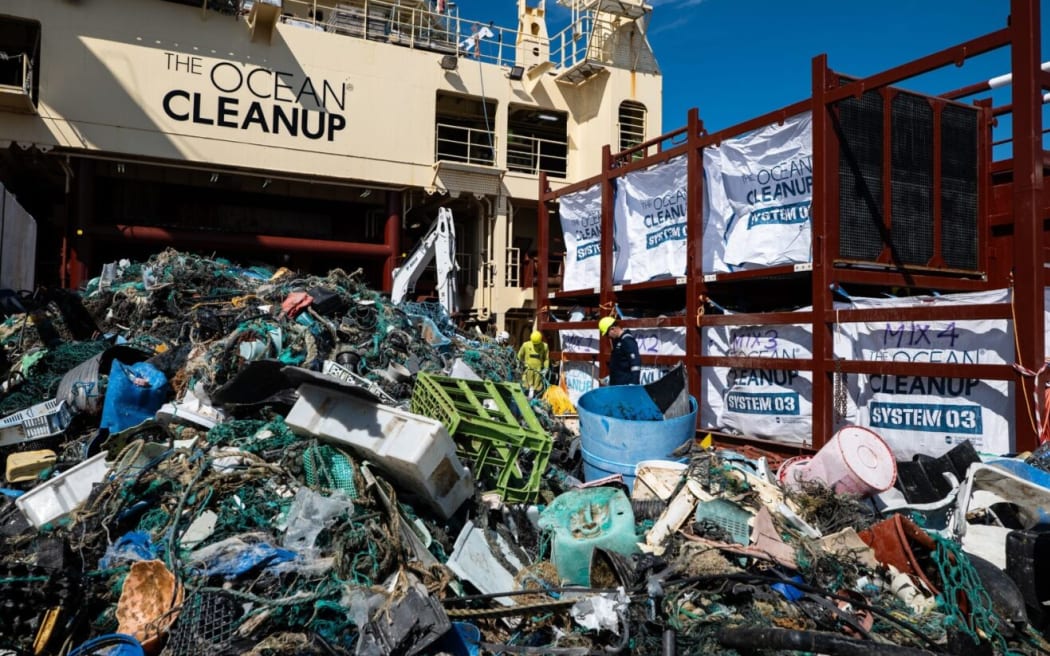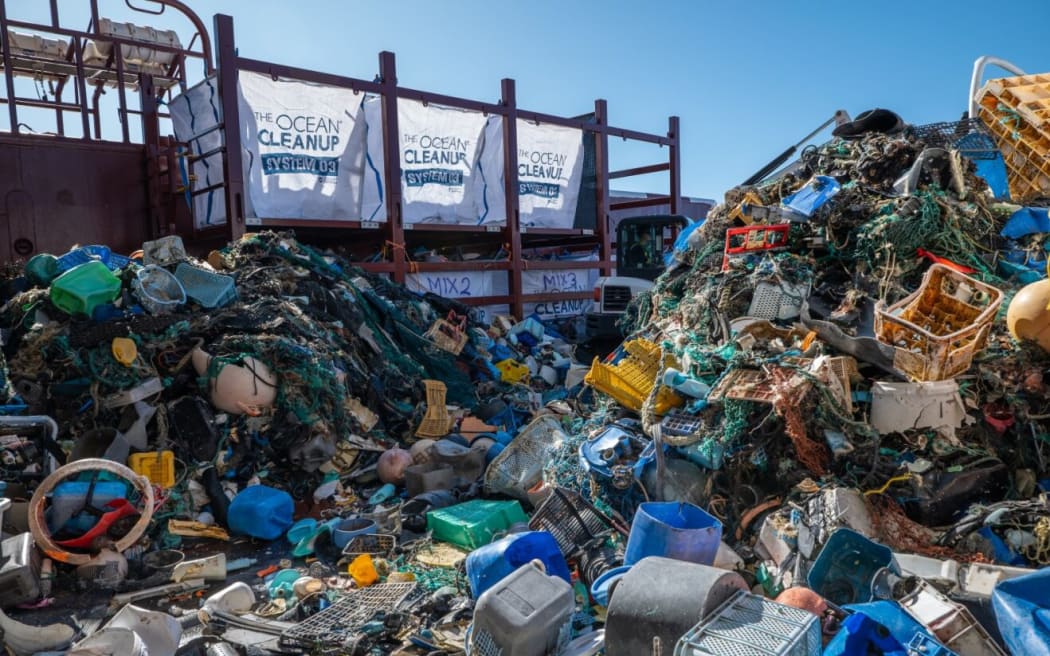
The Great Pacific Garbage Patch sits in the north Pacific. Photo: The Ocean Cleanup
A United Nations global plastics treaty being negotiated this week has the potential to have a major positive impact on the Pacific region.
One scientist and his team say new data they've produced shows it is possible to achieve a goal of "near zero" plastic pollution by 2040.
175 nations agreed in March 2022 to develop a legally binding agreement on plastic pollution by the end of this year, prompting a major step towards reducing greenhouse gas emissions from plastic production, use and disposal.
It could potentially impact future production, consumption and recycling of plastics worldwide.
The Treaty is expected to be finalised in late 2024 in Busan, Korea.
Project Scientist at the Benioff Ocean Science Laboratory Neil Nathan, on the sidelines of the negotiations, hoped to show delegates what was possible through the findings.
He helped develop an interactive policy modeling tool alongside data scientsts and engineers from UC Santa Barbara and UC Berkeley, for delegates to use in negotiating the plastics treaty.
He told RNZ Pacific if a "strong treaty is negotiated" it was "actually possible to achieve the goal of zero plastic pollution by 2040".
"That lit a fire for us to make sure delgates and countries are aware of what the best science is saying on the matter."
Pacific plastic problem
The "great Pacific garbage patch" is on the doorstep of many Pacific Island nations.
It covers an estimated surface area of 1.6 million square kilometres, which is three times the size of France.
A total of 1.8 trillion plastic pieces were estimated to be floating in the Pacific patch - that's 250 pieces of debris for every human in the world.
100,000 tonnes of plastic floats in the GPGP - that's over 740 Boeing 777s.
Health risk
Toxic additives, microplastics, and toxic emissions from production centres (often within marginalized communities) are impacting human health across the world, with research showing impacts on fertility, cancer risk, cardiovascular disease, lung health, and birth defects.
"This is another critical reason why we need to address production," Nathan said.
"We have to reduce our planet's dependence on plastic; otherwise our health will suffer for generations."

The Great Pacific Garbage Patch covers an estimated surface area of 1.6 million square kilometres. Photo: The Ocean Cleanup
Plastics solution suggestions
"This is a global and generational problem that can be solved, according to our data projections on plastic elimination," Nathan said.
An international fee or premium on plastic polymers could alone close the finance gap needed to fund recycling and waste management infrastructure in developing countries, and especially in the Pacific region, he said.
Other key policy suggestions included a consumer tax on packaging for unrecycled plastics. Minimum recycled content mandates were also shown to be one of the most effective tools in the box, he said.
It found without any intervention, 'global mismanaged waste' produced between 2011 and 2050 would tower roughly 3.8 kilometres into the sky if placed over Manhattan in New York City - using plastic bottles to represent that waste.
With a 'low ambition treaty', this plastic-bottle tower would reach 3.2km into the sky.
However with a high ambition treaty, using all of the suggested policies, it would decrease to 1.8km, he said.
"No one policy is a silver bullet, but implementing the policies together would make a difference."
"We also cannot forget about production of plastic. We will never truly eliminate the problem without addressing, limiting and reducing virgin plastic production."
Nathan also urged the US to take a leading role in the treaty negotiations and be "more ambitious" in tackling plastics pollution.


